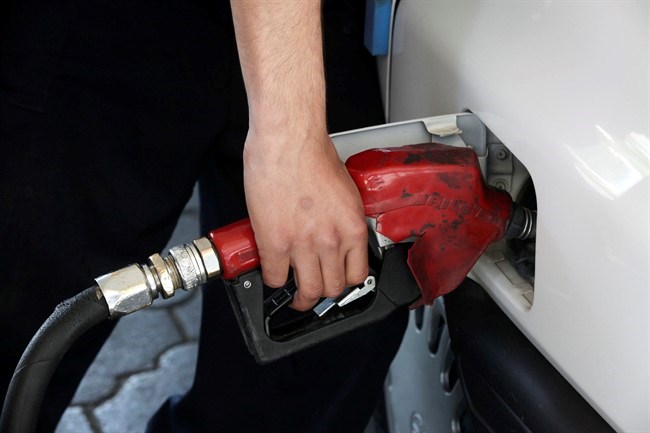 Premier John Horgan was fully prepped over the course of the legislative sittings last year about how to respond to questions about rising gas prices.
Premier John Horgan was fully prepped over the course of the legislative sittings last year about how to respond to questions about rising gas prices.
They started to skyrocket early in the year. That obviously prompts complaints, and complaints always find their way to question period, along the lines of: What are you going to do about this, and why haven’t you done something already?
So there was a long briefing note at the ready throughout last spring, should the topic arise.
It came up only once. Horgan and the Opposition batted it around for a few minutes, inconclusively.
With gas in the $1.50-a-litre range, Horgan was pressed for his views.
“Very, very concerned as we go into the travelling months … unacceptably high … supply and demand.”
He said if there were any evidence of price-gouging, the government wanted to hear about it, but: “We do not believe that at this time there are many options available to us.”
Prices started to drop and the issue faded.
But portions of the briefing note surfaced this week via a freedom-of-information request. With a lot more oil politics to play out this year, it might become even more relevant.
It’s a lengthy treatise on gas prices that concludes the government of B.C. would be better off not getting involved in trying to regulate or control prices, because it doesn’t work. “Research does not show it leads to lower prices.”
Past studies by the B.C. government in the 1990s, and other external studies, have concluded that “regulation is not the solution for high prices.”
So competition and all the other forces will continue to determine price, to the eternal mystification of drivers.
B.C. gas prices and the huge western differentials in price are like the federal equalization program — beyond the comprehension of mere mortals. The only clear takeaway from all the explanations is that coastal B.C. drivers generally get screwed.
Gas is about $1.28 a litre today in Victoria, $1.09 in Prince George, 93 cents in Calgary and 88 cents in Edmonton, according to price-tracking websites.
The briefing paper made note of the Trans Mountain Pipeline. It’s a big factor that’s going to get bigger.
Soon after the paper was written, the federal government bought the existing line, as well as all the work and rights associated with building the higher-capacity line alongside it.
The intense argument last year about that expansion cooled off slightly, after B.C. agreed to ask the courts for a jurisdictional ruling. That followed a burst of outrage from Alberta about B.C. considering moves to unilaterally limit the movement of Alberta oil through B.C.
Alberta responded with a law that allows the province to “turn off the taps” in B.C. Both sides are standing down, pending the court ruling.
The paper said the existing line supplies 61 per cent of B.C.’s gas. Most of the rest comes from the Burnaby refinery. But all the crude for that refinery also flows through the Trans Mountain line.
When access to Alberta crude is limited, more expensive fuels are imported via the port of Vancouver, it said.
“Local suppliers are able to demand a higher price to prevent the fuels from being exported to more lucrative markets.”
It also noted that the existing line is fully utilized and crude shipments have been increasing.
“This implies that refined-product shipments have been decreasing to make room for the increased crude oil shipments.”
The paper said last year’s price run-up was unprecedented behaviour of the market. “It’s not clear what’s causing these behaviours.”
But generally, it’s growing supply restraints in a region with expanding demand.
A 15 per cent increase in gasoline demand in B.C. from 2012 to 2016 is cited.
Meanwhile, the carbon tax, now costing eight cents a litre, bumps up again in April with two more hikes planned.
The long controversy over the pipeline and associated tanker traffic has been mostly an abstract political argument.
It could easily turn into a pocketbook issue at every gas pump on the south coast, depending on developments, once hostilities resume.



